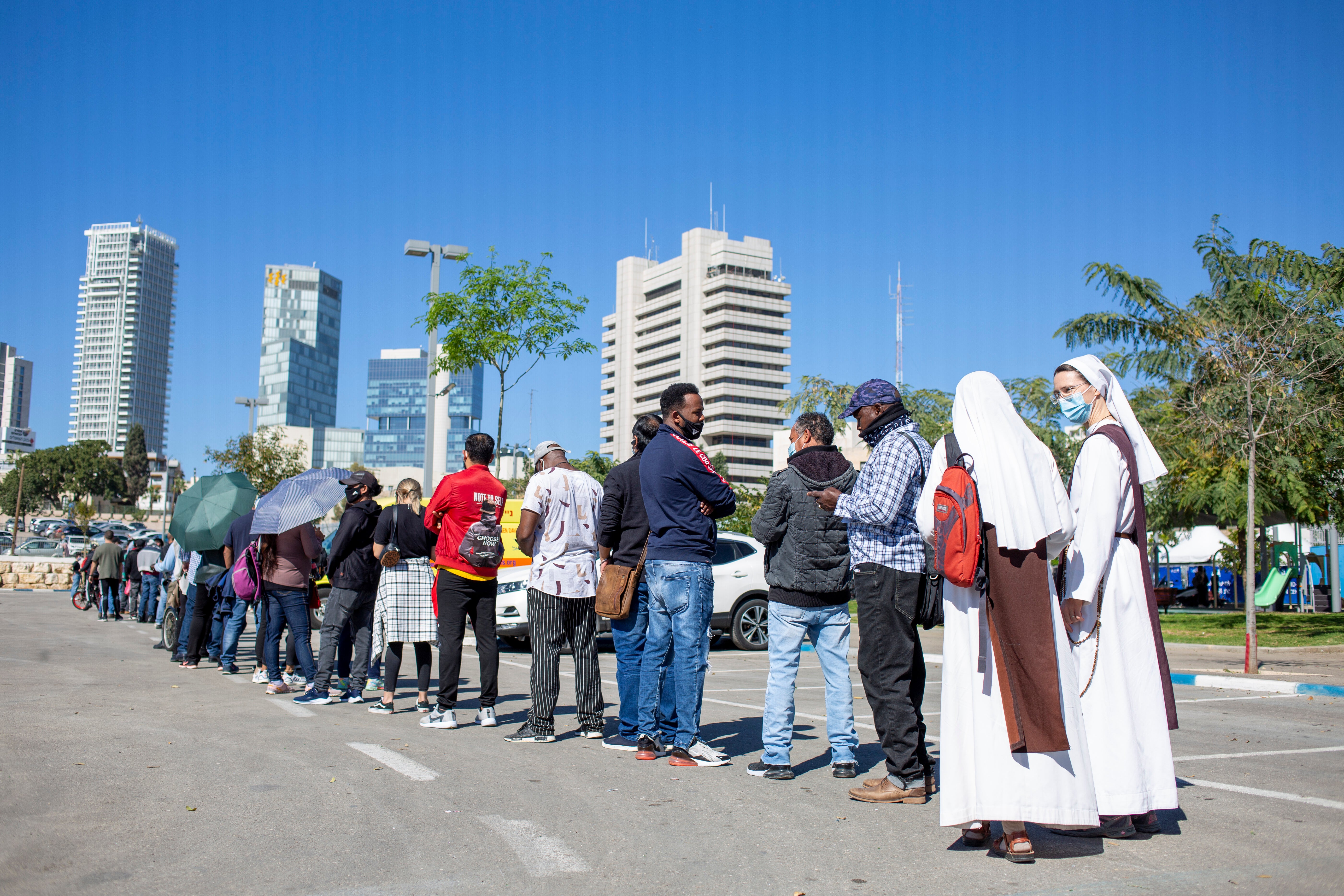Tel Aviv gives foreign nationals, asylum seekers COVID shots
Health authorities in Israel's Tel Aviv have started dispensing COVID-19 vaccines to foreign nationals and asylum seekers as part of an initiative to inoculate the city’s foreign population

Your support helps us to tell the story
From reproductive rights to climate change to Big Tech, The Independent is on the ground when the story is developing. Whether it's investigating the financials of Elon Musk's pro-Trump PAC or producing our latest documentary, 'The A Word', which shines a light on the American women fighting for reproductive rights, we know how important it is to parse out the facts from the messaging.
At such a critical moment in US history, we need reporters on the ground. Your donation allows us to keep sending journalists to speak to both sides of the story.
The Independent is trusted by Americans across the entire political spectrum. And unlike many other quality news outlets, we choose not to lock Americans out of our reporting and analysis with paywalls. We believe quality journalism should be available to everyone, paid for by those who can afford it.
Your support makes all the difference.Dozens of asylum seekers and foreign workers in the Israeli city of Tel Aviv lined up to receive their first dose of the COVID-19 vaccine on Tuesday as part of an initiative to inoculate the city's foreign nationals
Tel Aviv city hall and the Sourasky Medical Center started administering vaccines free of charge to the city's foreign nationals many of whom are undocumented asylum seekers
On its first day of operation, the vaccination center in southern Tel Aviv, which is home to a large migrant community, dispensed doses to dozens of foreign nationals who lined up outside the building. Posters provided information in English, Tigrinya, Russian and Arabic. Recipients included foreign workers from the Philippines, Moldova, and Nigeria, as well as Sudanese and Eritrean asylum seekers.
Garipelly Srinivas Goud, an Indian national who has worked in Israel for eight years, said that some foreign workers in Israel don't have money or insurance to afford paying privately for the vaccine, and said the vaccine drive was a "very good decision. I am very happy.”
Eytan Halon, a Tel Aviv municipality spokesman, said it was the government's responsibility “to vaccinate everybody within the nation’s borders” and that it would take the next step and start “to vaccinate the illegal or undocumented asylum seekers as well.”
Israel has pushed to inoculate most of its population since late December. Last week it made vaccines available to all citizens over the age of 16.
It has thus far delivered over 3.5 million first doses of the Pfizer vaccine and at least 2.1 million second doses. It has also started providing the Palestinian Authority with thousands of vaccines for healthcare workers.
On Sunday, Israel started easing some of its lockdown restrictions that had been in place for over a month in an effort to clamp down on the spread of the coronavirus.
Infection rates in Israel remain high. The country has recorded over 700,000 cases of the coronavirus since the start of the pandemic last year. At least 5,192 people have died of the disease, according to Health Ministry figures published on Tuesday.